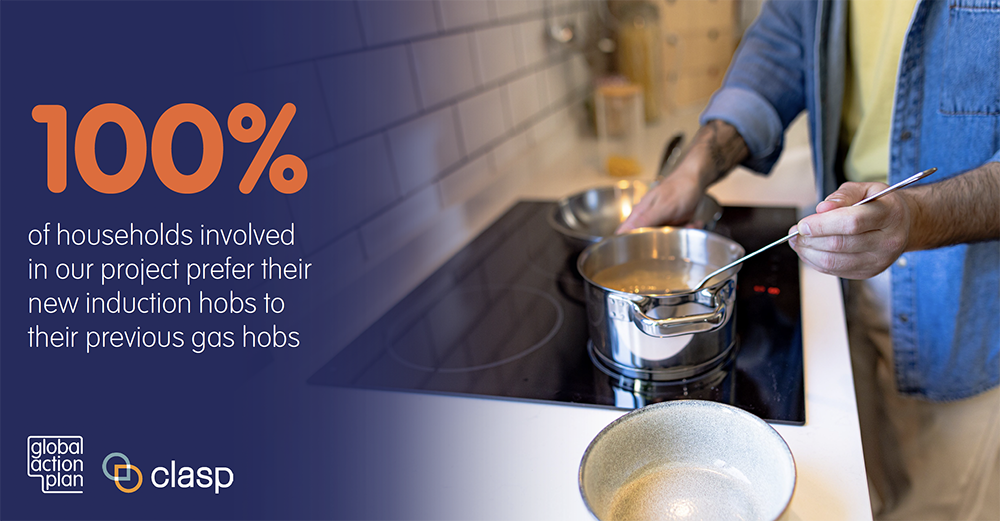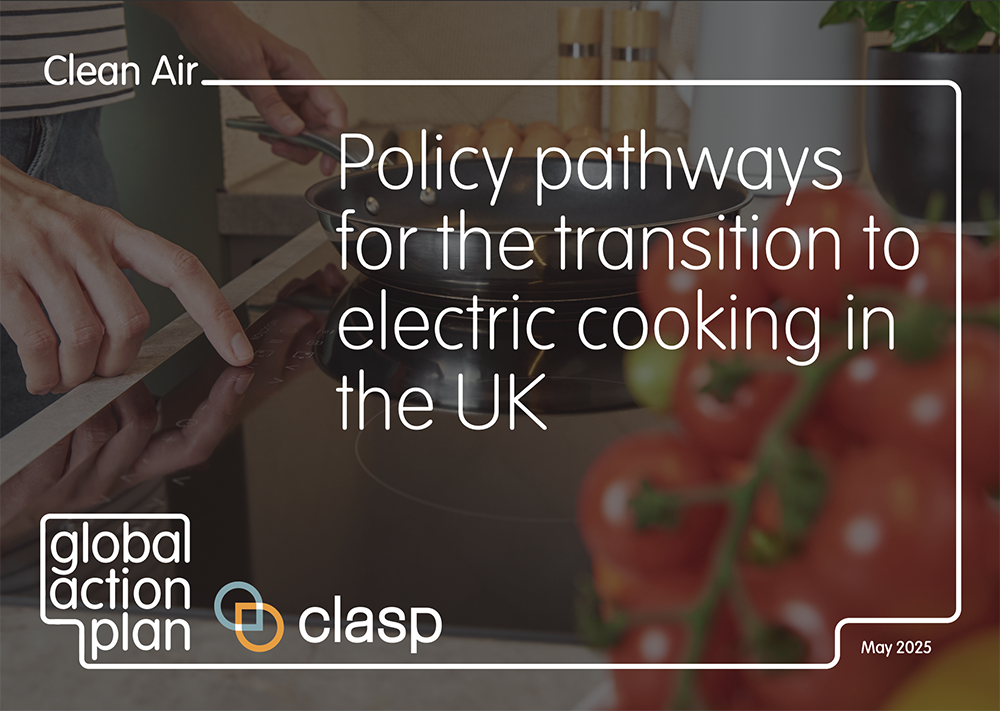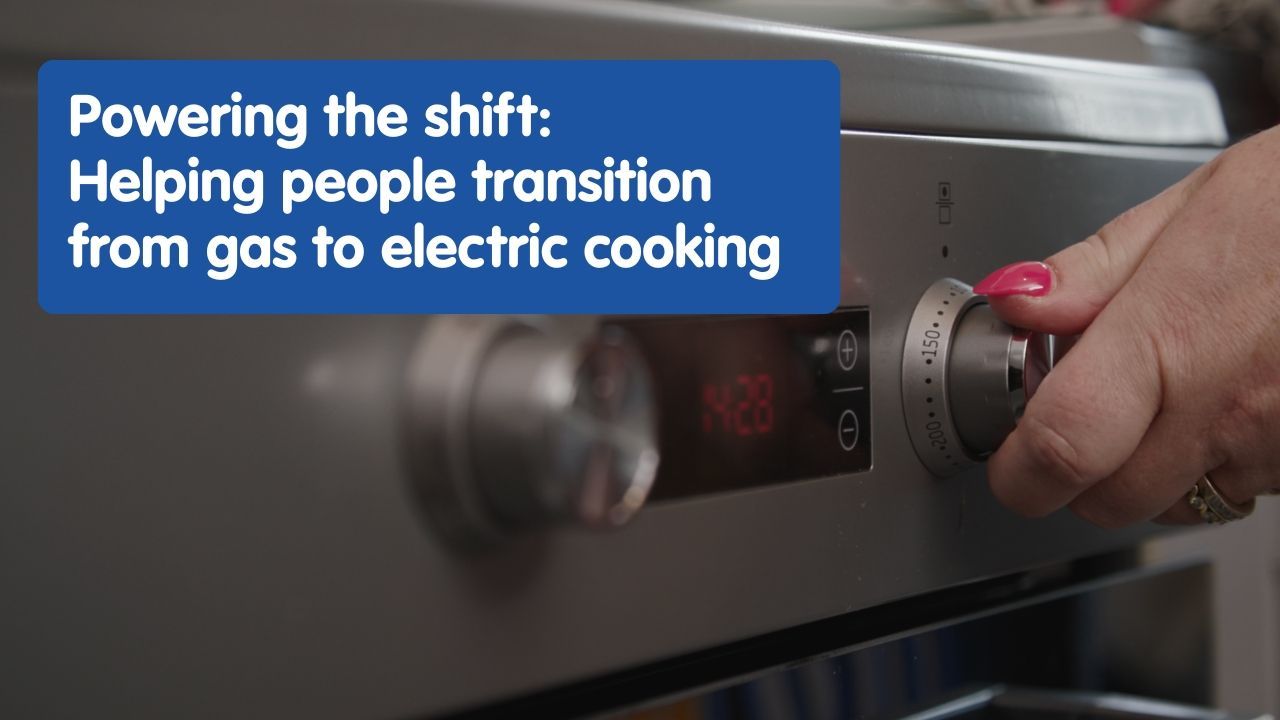Cooking for Health and Climate: Insights from a UK Retrofit
News
What happened when families in Manchester, UK, ditched gas cooking for good?
A shift is underway in how people power their homes across Europe, driven by climate targets and energy security concerns. Much of the momentum has focused on heating and cooling, with fossil fuel boilers being replaced by electric heat pumps and other low-carbon systems. But many kitchens are being left behind.
For over 15 million households in the United Kingdom (UK), cooking with gas is still the norm. This comes with hidden risks, including indoor air pollution from substances like nitrogen dioxide (NO2), carbon monoxide, and benzene. These pollutants carry significant health impacts: NO2 has been linked to asthma, lung disease, and other serious health conditions, and benzene is a known carcinogen. Beyond the health risks, even when not in use, gas stoves can also leak methane, a potent greenhouse gas that contributes to climate change.
A recent pilot project led by Global Action Plan, in partnership with CLASP, shows how switching to electric cooking can significantly improve people’s quality of life, while helping the UK meet its climate goals.
A gas-to-electric cooking retrofit in Manchester
In early 2025, Global Action Plan and CLASP partnered with Greater Manchester Combined Authority, Southway Housing, Beko, B&Q, and Electrolux to launch a social housing retrofit pilot. The goal: Remove gas cookers from ten Manchester homes and replace them with electric ovens and induction cooktops.
Each of the participating households had already completed a heating retrofit, making cooking the final milestone in the journey to full household decarbonization, which would allow them to disconnect from the gas network and remove the standing charge from their energy bills. Residents were surveyed and interviewed before and after the switch, providing valuable insights into the process of transitioning, as well as the benefits of electric cooking.
What the retrofit revealed

The results were striking:
- All participating households preferred their new induction cooktops to their old gas ones.
- Eighty-five percent found the transition easy or very easy.
- Awareness of the impact of gas cooking on indoor air quality jumped from 40% to 100%.
For some, the retrofit was life-changing. Farrah, a resident with asthma, said she needed her inhaler while cooking on gas. With her new induction cooktop, she can now breathe easier in her kitchen. Others, like June, initially hesitated to give up gas. But once she adapted to the touchscreen controls, she found induction easier to use and kinder on her arthritis. Stacie, a mother of two, felt safer without gas in the home. The residents’ experiences point to a clear conclusion: electric cooking is easy to adopt, comes with tangible benefits, and is favored by the people who have made the switch.
How local and national governments can help
The pilot project didn’t just highlight the real-world benefits of electric cooking—it also showed how widespread adoption is possible with the right support and created a model for scaling it across the UK. Based on the project’s insights, Global Action Plan and CLASP developed a checklist for local authorities to help plan and deliver cooking retrofits. From resident engagement to appliance provider selection, the guide provides a practical roadmap for replicating the Manchester pilot’s success of the Manchester pilot.
To support a national shift toward electric cooking in the UK, Global Action Plan and CLASP also released a report that provides policy pathways. The report was presented earlier this year during an event held in the UK Parliament, attended by members of Parliament, local policymakers, industry representatives, academics, local government officials, and public health professionals. The document outlines the steps needed to overcome barriers, like low public awareness and the exclusion of cooking appliances in current home retrofit schemes.

An equitable clean cooking transition
Moving the UK toward healthier, cleaner, and more efficient electric cooking is about far more than simply replacing appliances. Indoor air pollution from gas stoves disproportionately impacts vulnerable groups such as children, the elderly, and those with respiratory conditions, making this a critical public health issue, as much an environmental one.
Achieving an equitable transition to modern cooking technologies requires addressing systemic barriers and prioritizing policies that support low-income families and other groups often left behind in clean energy initiatives. Beyond health and environmental benefits, electric cooking improves kitchen safety by eliminating open flames and gas leaks, in addition to reducing energy costs over time. Another benefit: Electric cooking is compatible with renewable energy and smart technologies that help households better manage their energy use, fostering more efficient and climate-friendly homes.
For more information about the retrofit pilot project: https://www.globalactionplan.org.uk/clean-air/gas-to-electric
Check out CLASP’s resources on the topic: https://www.clasp.ngo/cook-cleaner-europe/

